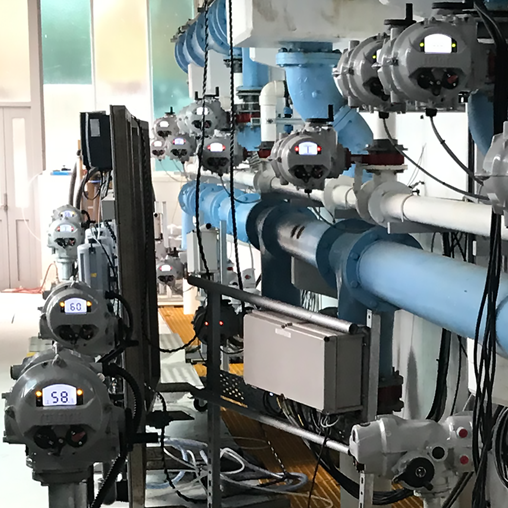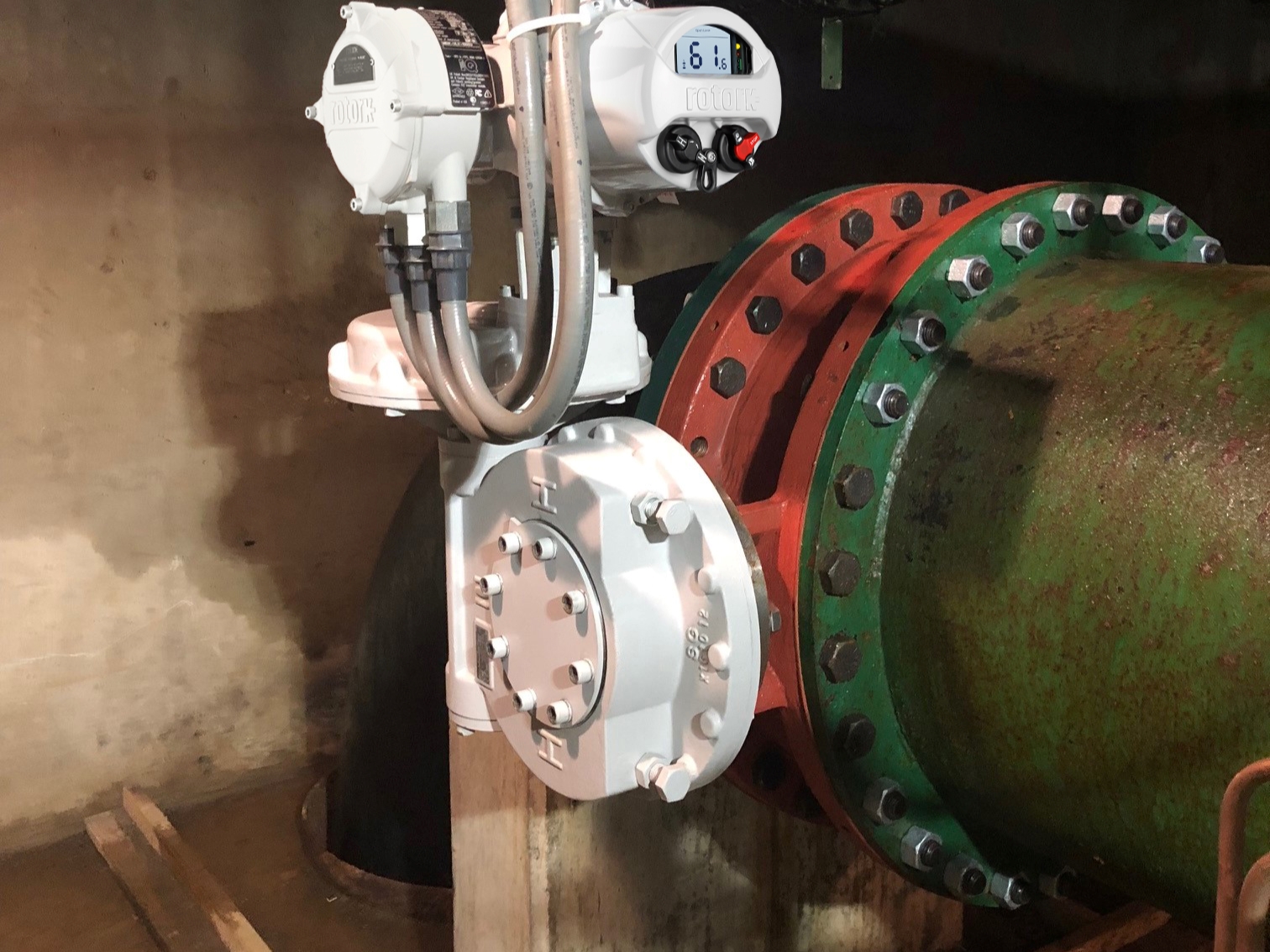The involvement of flow control within water industries can be split into two main areas: potable water and wastewater. Both areas are essential in the lives of us all; the availability of drinking water when we turn on the tap and how effluent and sewage is managed are key services we all rely on. Actuators are key items of equipment in potable and wastewater applications. This article will look at the requirements and challenges of these applications and will focus on examples of how flow control equipment allows the smooth running and success of water sites around the world.
Actuators operate and move valves and are the key items of equipment in flow control. They can be electrically, hydraulically or pneumatically controlled. Effective flow control helps to improve efficiencies and increase water supply. Many operators in water require valves and dampers to move repeatedly between set positions. They are involved in a variety of applications including filtration, desalination, distribution, dams, reservoirs and irrigation systems. The ability of actuators to do this makes processes more efficient, minimises waste and reduces energy consumption.

Electric actuators are common within the wider water industry. They provide precise operation, with repeatability and resolution. Flow control equipment within water applications must have water ingress protection to provide continuing operation and ensured reliability. Actuators within Rotork’s IQ range are environmentally sealed in the factory. They are double-sealed to IP66/68 at 20m for 10 days, protecting the internal components from water, moisture, dirt and dust. Robust, long-lasting equipment with minimal maintenance even in extreme environments is necessary within water applications. For example, in 2021 Rotork supplied IQ3 actuators to several water treatment sites in New Zealand. Previously, the sites had pneumatic actuators but required environmentally sealed electric actuators because of the damp, chlorinated atmosphere. The new actuators provide control of filters, as well as the chemical dosing and storage of potable water. Electric actuators have another benefit for operators: they do not need power compressors to provide an air supply to pneumatic actuators.
There are different ways of creating water suitable for drinking. Flow control can be found in almost every process control application in sea water desalination plants and freshwater treatment plants, from import to distribution. Filtration is a key process in these applications. Partially treated water passes through a medium that strains it, such as sand or anthracite. Different types of filters are used, such as simple slow sand filters or rapid gravity sand filters. Flow control is critical in the filtration process. 300 IQ actuators were installed at a US water filtration plant as part of an upgrade in 2020. They operate 12-to-30-inch butterfly valves at Eugene Sawyer Water Purification Plant in Chicago to provide improved flow control for water travelling into and out of the facility’s sand filters.
The treatment of wastewater and its future discharge or reuse (such as within irrigation systems) requires specialist equipment and precise control to comply with strict environmental regulations. The use of actuators and subsequent automation ensures efficient effluent treatment and protection of the environment. Treated water is often returned to the sea or other water sources, subject to local policies. Flow control is central to this process. In 2020 electric CK actuators were ordered to control the flow at Ergene Basin Deep Marine Discharge Project, Turkey, one of the longest sea discharge lines in Europe. The electric actuators operate penstocks at the treatment plants. It is essential that actuators in this context can reliably operate within high temperatures and demanding environments.



